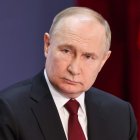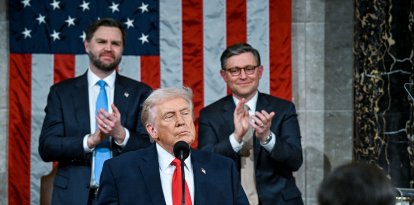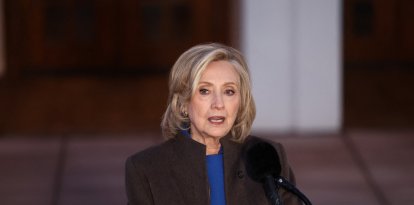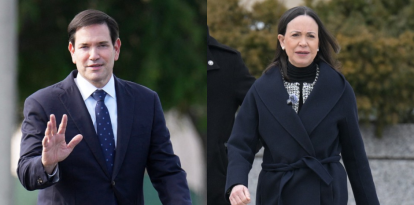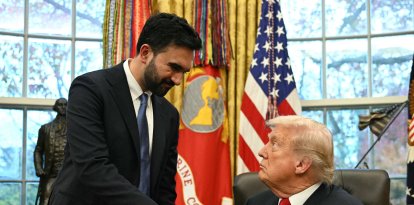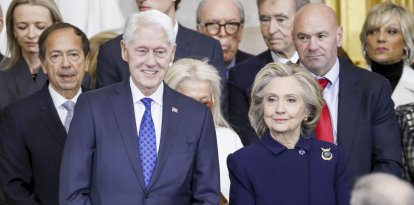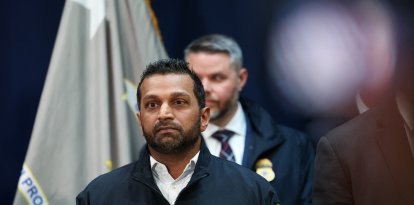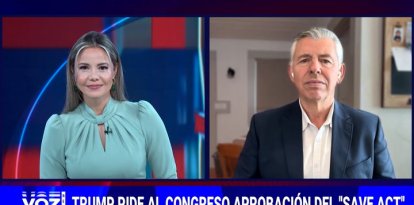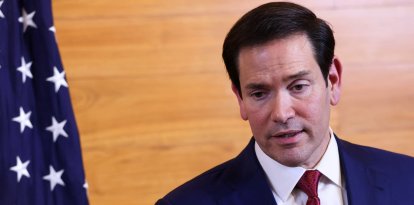What does Keith Kellogg, Trump's special envoy for Ukraine and Russia, think about the war?
Advisor to the Republican during his first term, he recently stated that the US should make military aid to Kiev conditional on sitting down at the negotiating table with Russia.

Donald Trump and Keith Kellogg during the Republican’s first term.
President-elect Donald Trump called into the ranks of his administration retired general Keith Kellogg (80) as special envoy for Ukraine and Russia.
"Together, we will secure PEACE THROUGH STRENGTH, and Make America, and the World, SAFE AGAIN!" the president assured. Kellogg was part of Trump's first term, holding several positions linked to national security.
From the inner circle of the 47th president, his loyalty stands out during that period and his knowledge of geopolitics. Trump himself alluded to his closeness with Kellogg when appointing him to the post: "He was with me right from the beginning!"
Ending the war in Ukraine was one of the Republican's main campaign promises in the international arena, among others such as standing up to China. The appointment comes amid a rhetorical and military escalation between Kiev and Moscow; who, according to various analysts, will be seeking to improve their positions on the ground before Trump's inauguration.
"A simple spark can spin things out of control"
In a recent interview with Fox, whose studios he usually frequents, Kellogg assured that "we're right on the precipice" of World War III. The future White House adviser noted that North Korea, China, Iran and Russia have gotten closer in the past four years. That they are "feeding off one another." As an example he mentioned the North Korean troops fighting for Russia.
Conflict there, he asserted then, would be Trump's biggest challenge in the international arena. "A simple spark can spin things out of control."
He is co-chairman of the America First Policy Institute's (AFPI) Center for American Security. In an article he wrote for AFPI earlier this year, he asserts that Joe Biden's "incompetence" and "poor leadership" led to the February 2022 invasion of Ukraine.
It would never have happened, he asserted, with Trump in the Oval Office.
"America needs a new approach and a comprehensive strategy for the Ukraine War," he asserted. A new vision that includes the certainty that a prolonged war is not in the country's interest. Ukraine faces serious problems, such as difficulties in recruiting, and in the long run will probably start losing ground. Moreover, the continuation of the conflict will bring Pyongyang, Beijing, Tehran and Moscow closer together.
"America First is not isolationist," he asserted. Rather, it appears to be an effort to better choose which battles to fight: "The war is drawing down America’s stockpile of advanced weapons, such as HIMARS missiles, that may be needed in other conflicts, especially if China invades Taiwan."
To end the war, the US should agree to a "cease-fire and negotiated settlement." In the meantime, it has to continue arming Ukrainian troops on the condition that Kiev engages in peace talks.
The North Atlantic Treaty Organization (NATO) must also commit to postponing Ukraine's accession, one of the reasons why Vladimir Putin advanced on his neighbor. Russia could also benefit from "limited sanctions relief," although, he proposes, there should be fines on Russian energy to help with Ukrainian reconstruction.
Kellogg and Fred Fleitz, co-author of the article and also a former Trump adviser, sum up their aim in a quote from the Republican in a town hall last year, "I want everyone to stop dying."





